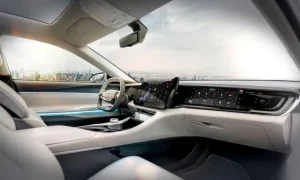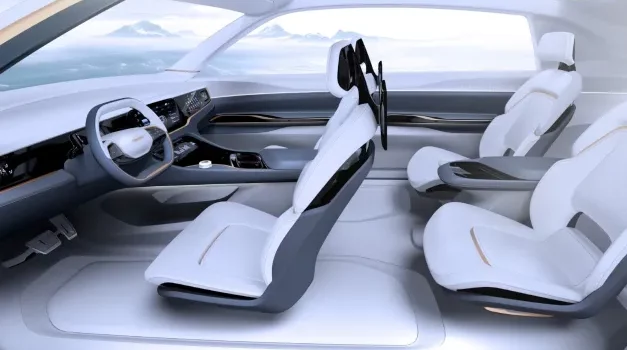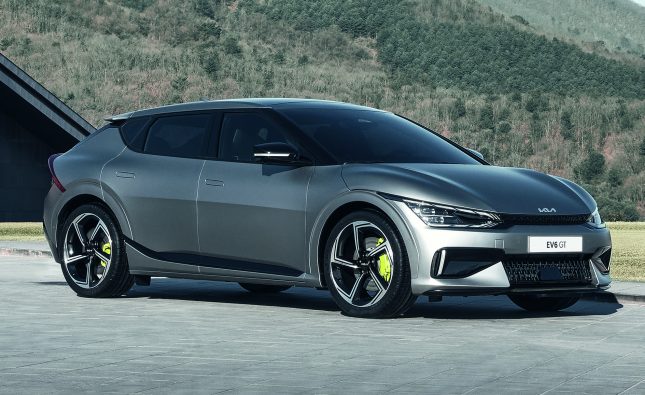
Introduction
The Consumer Electronics Show (CES) 2024 witnessed a groundbreaking milestone in automotive technology as Mercedes-Benz unveiled its latest leap in innovation: the introduction of a cutting-edge smart assistant within their vehicles. This futuristic integration of AI technology aims to redefine the driving experience, revolutionizing how drivers interact with their vehicles while prioritizing safety, comfort, and efficiency.
The Evolution of Smart Assistants in Automobiles
From Voice Commands to Personalized Assistance
In recent years, smart assistants have become increasingly prevalent in our daily lives, transitioning from mere voice-activated interfaces to comprehensive aides that understand and cater to our needs. The automotive industry, in particular, has been at the forefront of integrating these technologies into vehicles, enhancing the driving experience and safety measures.
Mercedes’ Vision: Redefining In-Car Intelligence
Mercedes-Benz’s latest unveiling marks a significant stride in this trajectory. Their vision extends beyond conventional voice-command systems, aiming to create an intelligent and intuitive companion within the vehicle. This smart assistant is engineered to comprehend natural language, anticipate driver needs, and proactively offer assistance, redefining the in-car experience.

The Essence of Mercedes’ Smart Assistant
Seamless Integration and Intuitive Interaction
One of the standout features of Mercedes’ smart assistant is its seamless integration with the vehicle’s systems. Through advanced sensors and AI algorithms, the assistant effortlessly adapts to the driver’s habits and preferences, delivering a truly personalized experience. Its intuitive interface allows for natural and conversational interactions, making it feel like a knowledgeable companion rather than a mere tool.
Safety and Assistance: Beyond Expectations
Safety remains paramount in Mercedes’ design philosophy. The smart assistant is not just a convenience; it’s a proactive safety measure. It continuously monitors road conditions, driver behavior, and external factors, providing real-time assistance and warnings to prevent potential accidents. From suggesting routes based on traffic conditions to alerting the driver of potential hazards, its capabilities are unparalleled.
Comfort and Convenience Redefined
Beyond safety, the assistant focuses on elevating comfort and convenience. It can adjust various in-car settings based on driver preferences, such as temperature, seat position, and entertainment options, creating a truly personalized driving environment. Additionally, it seamlessly integrates with other smart devices, allowing for home-to-car and car-to-home connectivity, enabling tasks to be handled effortlessly even before entering the vehicle.
Technological Marvel: Behind the Scenes
AI and Machine Learning: Powering the Assistant
At the core of Mercedes’ smart assistant lies sophisticated AI algorithms coupled with machine learning capabilities. These technologies enable the assistant to continuously learn and adapt to the driver’s behavior, preferences, and surroundings, ensuring a tailored and evolving experience. The ability to analyze vast amounts of data in real-time empowers the assistant to make split-second decisions for optimal performance.
Data Security and Privacy Measures
Amid concerns about data privacy, Mercedes has emphasized its robust measures to safeguard user data. The assistant operates with strict adherence to data protection regulations, ensuring that sensitive information remains secure. Anonymization techniques and encrypted communication channels are employed to prioritize user privacy without compromising the assistant’s functionality.
Future Prospects and Industry Impact
Expanding Ecosystems and Interconnectivity
Mercedes’ foray into smart assistants signals a broader trend in the automotive industry. The integration of AI-powered assistants is poised to become a standard feature, fostering increased interconnectivity between vehicles, smart devices, and smart infrastructures. This convergence is expected to redefine not only the driving experience but also urban mobility as a whole.
Challenges and Ethical Considerations
While the potential benefits are immense, challenges lie ahead. Ethical considerations surrounding AI decision-making, data privacy, and the need for standardized regulations are critical aspects that demand attention. Striking a balance between innovation and accountability will be pivotal in harnessing the full potential of these advancements.

Conclusion
Mercedes-Benz’s introduction of its smart assistant at CES 2024 marks a pivotal moment in the automotive industry’s trajectory. The convergence of AI, machine learning, and automotive engineering has resulted in a paradigm shift, where vehicles are not merely modes of transport but intelligent companions that prioritize safety, comfort, and personalization. As this technology continues to evolve, it heralds a future where vehicles seamlessly integrate with our lives, anticipating and catering to our needs. Mercedes’ smart assistant serves as a testament to the transformative power of innovation and sets the stage for a new era of intelligent mobility.










